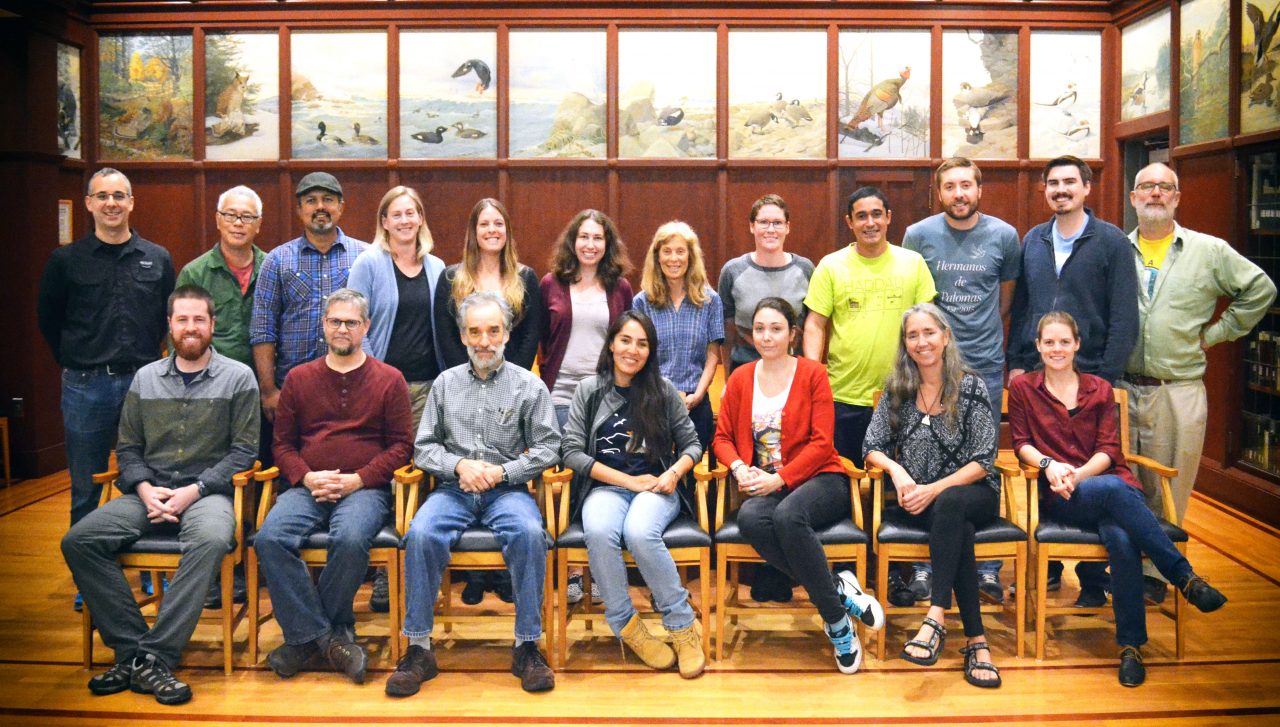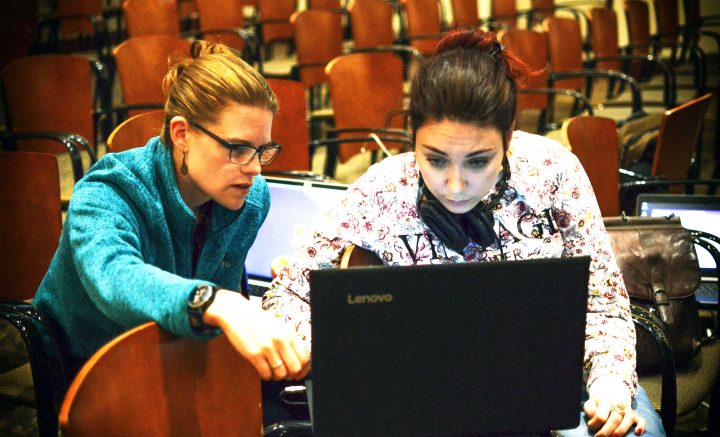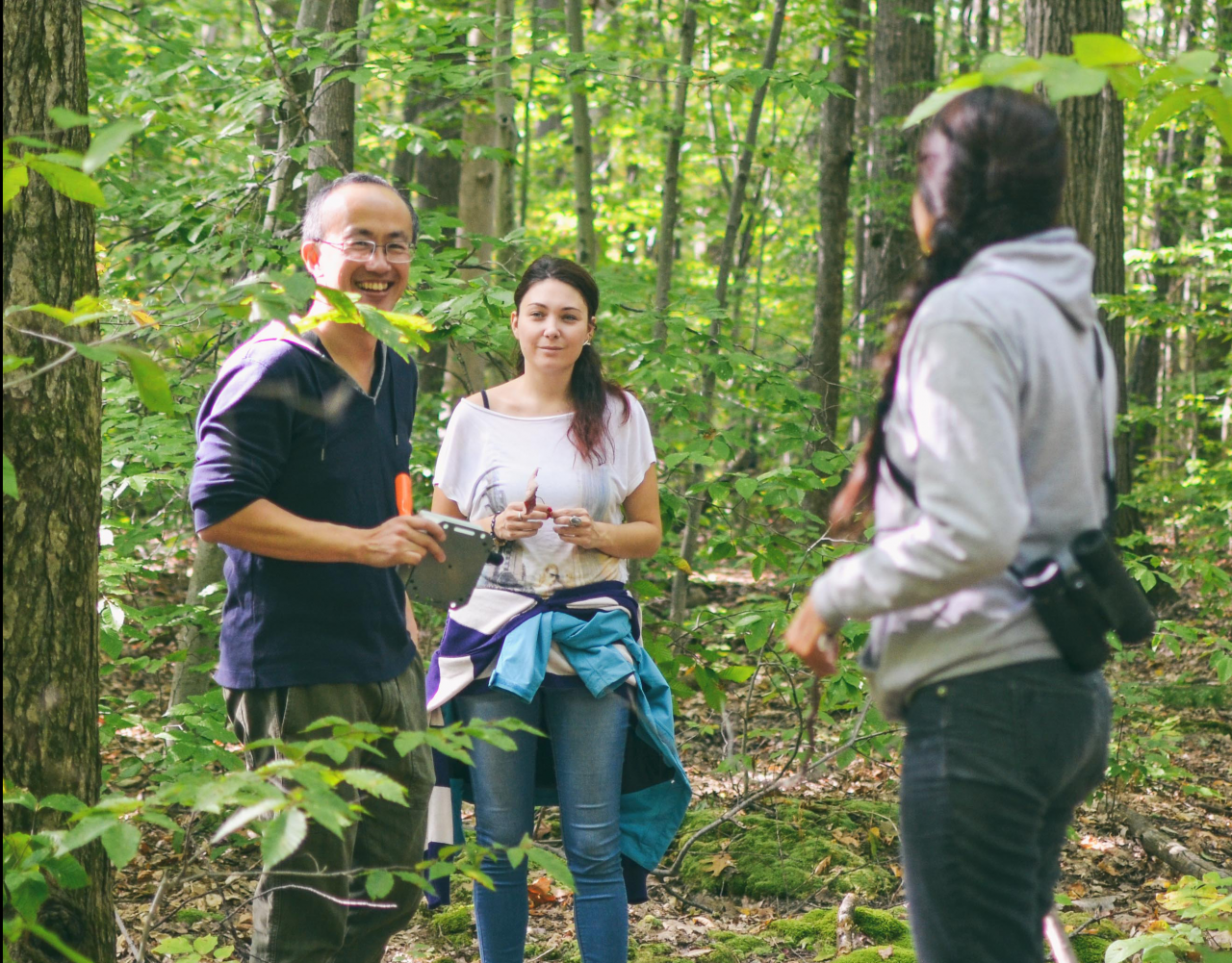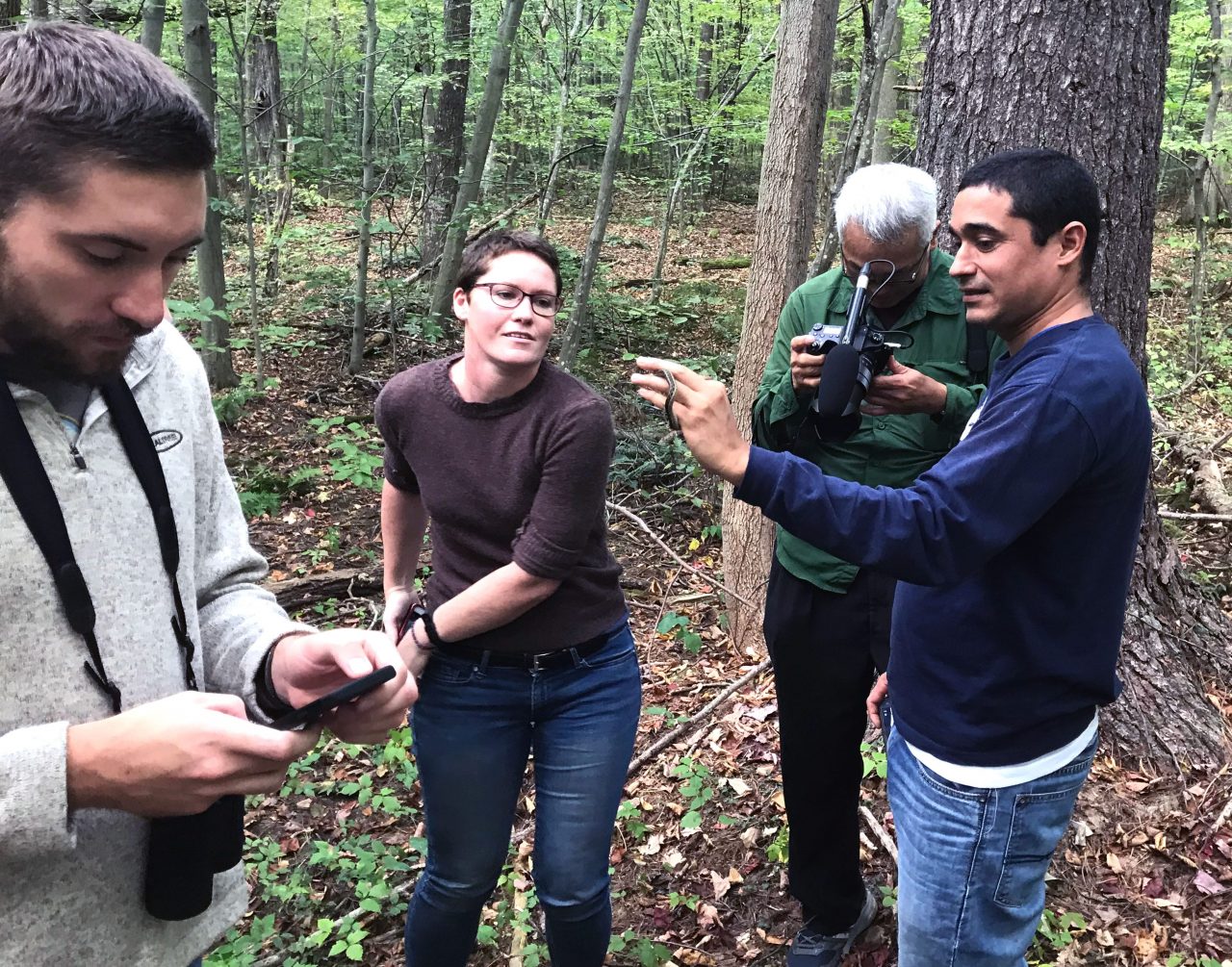Scholarships support international training in bioacoustics
Twice a year, BRP offers an intensive five-day introductory Sound Analysis Workshop here at the Lab of Ornithology in Ithaca. The aim of the workshop is to train scientists, especially those new to bioacoustics, how to use modern bioacoustic principles and tools properly to address a variety of basic and applied research problems. Since its inception in 2007, the SAW has trained over 350 scientists from around the world working on birds, marine mammals, elephants, primates, bats, fish, frogs, and most other groups of sound-producing animals. SAW participants have sought to unravel mysteries of animal communication, elucidate evolutionary relationships among populations, discover new species, monitor migration and distribution of animal populations, and understand impacts of human activities on wildlife.

Today, many software packages for visualizing and analyzing animal sounds, like BRP’s Raven, are widely available. But the knowledge and understanding needed to use these tools properly to yield robust scientific insights are harder to come by, and many pitfalls await the newcomer. The workshop aims to provide the practical foundation of fundamental concepts and skills needed to launch research into any question related to the sounds that animals make. In order to enable a high level of individual attention for the unique needs of each participant, workshop attendance is capped at twelve for each session.
One of the most frequent questions we receive about the SAW is whether there is any scholarship funding available. Particularly for students and researchers in developing countries, the cost of attending the workshop can be prohibitive. Although providing training and assistance to outside researchers, especially those from developing countries, is a high priority for BRP, until recently we’ve never had the resources to offer scholarship support. This year, thanks to a generous gift from Ecological Associates, Inc., we’re able to offer scholarship assistance to four biologists from developing countries to attend workshops this past October and next April.

Our first two scholarship recipients joined us in Ithaca last month for our latest workshop. Dr. Abel Batista studies frogs in his native Panama, and Divna Djokic, a citizen of Serbia currently pursuing her Ph.D. in Brazil, is studying the songs of humpback whales.
Abel, a faculty member at Universidad Autónoma de Chiriquí, works on advancing knowledge of Central American biodiversity, especially amphibians and reptiles. Before coming to the workshop, Abel had taught himself the basics of using Raven Pro for visualizing and measuring sounds, and had used acoustic methods, in conjunction with molecular genetic techniques, to describe five new species of frogs that were otherwise indistinguishable from other, previously known species. After his week at the Lab, Abel said that “the workshop greatly improved my ability to analyze my frog recordings effectively, even though I’ve worked with Raven for more than five years.” With his newly honed acoustic analysis skills, Abel expects to discover additional new species in nearly 1000 audio files that he already has awaiting analysis. Some of these species are likely to have extremely limited ranges; their discovery and description would be an important step toward protecting their fragile tropical habitats.
In addition to his passion for research on amphibian biodiversity, Abel is enthusiastic about sharing his knowledge and skills with colleagues and students. He writes that “in Panama and in Latin America in general, there are few people with expertise in bioacoustics, although many students are very interested in this field. Because of the Sound Analysis Workshop, I am feeling more confident to create a bioacoustics research group, to involve more people from my country in doing research in bioacoustics. The knowledge I have gotten at Cornell will help me to transmit what I learned to other students and researchers from my university, and I plan to organize a workshop in Panama very soon.”

As a doctoral student in a Brazilian bioacoustics research group, Divna Djokic is investigating the possibility of cultural transmission of humpback whale song between the south Atlantic and south Pacific ocean basins. Although humpback populations in the two oceans are separated by the South American continent during the breeding season, in the austral summer both populations migrate to sub-Antarctic feeding grounds where they could potentially hear each other’s songs. This raises the possibility of “meme flow” of song elements between the two populations. Evidence of such feeding-ground song exchange between populations within a single ocean basin has begun to emerge in recent years, but this possibility has not been studied for populations that breed on opposite sides of a continent.
Divna expects that the principles, tools, and techniques taught in the workshop will help her advance our understanding of the fastest and largest-scale case of non-human cultural evolution on our planet. “Before coming to the workshop,” Divna writes, “I’d been using Raven for eight months, and knew that there were some holes in my knowledge and skills. The workshop not only filled those holes, but also showed me how much I didn’t know, and what additional questions I needed to ask.” In the long run, Divna hopes eventually to establish the first bioacoustics research group in her native Serbia.

Divna (center) during the SWIFT deployment demonstration at Sapsucker Woods. Photo by Ana Verahrami. 
Wild life encounter: Abel (right) holding a garter snake during the SWIFT deployment demonstration at Sapsucker Woods
All of us who got to know Abel and Divna during their week with us wish them continued success in their work, and we look forward to hearing about their future discoveries using bioacoustics.


